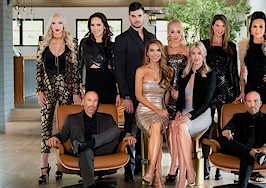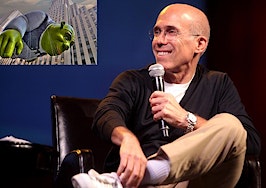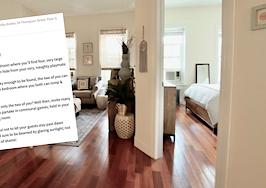The rooftop bar and pool. The puppy spa. The indoor garden. The Peloton studio. The meditation room.
These are the luxury amenities high-end apartment dwellers have become accustomed to today. And nearly all are now inaccessible due to COVID-19.
In the age of coronavirus, luxury apartment and condo buildings are quickly realizing that amenity offerings they’ve built a value proposition on have been rendered useless in the face of fears over contagion. As a result, some have shifted focus to an amenity to meet the current moment: the health concierge.
Health concierges provide membership-based access to a health clinic, which may include perks like 24/7 access to a medical professional and an option for house calls. In the age of coronavirus, such concierges are increasingly partnering with luxury residential buildings and making them available exclusively to residents while others are open to the community at-large, provided those individuals have memberships with the healthcare company.
“With the pandemic, this type of service is even more desirable,” said Evan Stein, president of JD Carlisle, which recently partnered with Sollis Health to provide concierge services to residents of Madison House, a luxury building in Manhattan. “Buyers appreciate it and understand it connotes luxury and what the property’s service level and attention to detail is. A peace-of-mind-amenity for uncertain times, buyers like knowing they will have access to the best doctors New York City has to offer and appreciate the peace of mind that comes the moment they buy at Madison House.”
The idea itself is not entirely new. Sollis Health originally began providing members-only urgent care to residents of Manhattan’s Upper East Side in 2016 when it was then known as Priority Private Care. Since then, the concierge healthcare provider has expanded to the Hamptons, and has a location forthcoming in Los Angeles. It also partners with other luxury residential buildings in New York City, including One Madison by developer Related and several properties developed by The Brodsky Neighbors and Partners, to provide discounted health memberships to residents.
Because of its limited service model, Sollis Health cofounder Andrew Olanow believes visiting one of his clinics is the safest option amid the pandemic.
“We do not see COVID-19 patients in our centers and have robust cleaning protocols, so we believe Sollis Health is one of the safest places to receive medical care,” Olanow told Inman in an email. “Furthermore, our ability to provide house calls allows members to be cared for in the safety of their own homes, while also preventing COVID-positive patients from having to travel and put the public at risk. Our COVID-19 testing and treatment plan has been a very effective way for people to stay safe and healthy during the last six months. Our testing turnaround times are typically within 24 hours, and our treatment protocol (vitals sign monitoring, home x-rays, oxygen support) has helped out patients to be safely treated at home and avoid hospitalizations.”

A waiting room in one of Sollis Health’s clinics | Photo credit: Sollis Health
Member discounts vary depending on the apartment building, but Brodsky-owned property residents, for instance, receive 20 percent off their first year of a Sollis Health membership with guaranteed application acceptance and priority access to services. In all, Sollis Health memberships can cost between $3,000 to $5,000 per year, depending on a person’s age. A membership includes unlimited visits with a physician, telemedicine, lab work, in-home COVID-19 management (which includes home imaging and oxygen support), travel medicine, and house calls, among other services.
“Residents have always responded enthusiastically to our health-related partnerships and offerings, like community yoga and stretching classes and exclusive partnerships with local businesses like House of Waris healing botanical blends,” Brodsky Neighbors and Partners said in a statement emailed to Inman. “Now, in the midst of COVID-19, residents are more tuned-in than ever to personal health and wellness.”
Hudson Yards, a mixed-use development on the Far West Side of Manhattan, developed by Related, also recently adopted a health concierge exclusively for residential tenants in the complex, as well as for individuals who work in its office towers, called The Health Center at Hudson Yards.
The health clinic, which is located at 55 Hudson Yards, opened in early 2019 and is a member of the Mount Sinai network. The clinic is open seven days a week (although, not 24 hours), doctors are available by phone at all hours and services do not include emergency treatments. A basic membership for a residential tenant of Hudson Yards comes with a $500 annual membership fee, and promises perks like same day appointments, no wait times and home and office prescription delivery. Most health insurance will cover the cost of individual treatments.
Eden Health also recently announced its concierge health amenity for commercial real estate buildings, which provides on-site and virtual medical services through a direct-to-employer healthcare platform. As of now, commercial real estate groups The Connell Company and Convene (based in Berkeley Heights, New Jersey; and New York City, respectively) have both adopted Eden Health’s healthcare platform.
In lieu of being able to offer other familiar amenities during a global health crisis, will health concierge be the next thing to set luxury residential and commercial buildings apart? Brodsky seems to think so.
“This partnership is part of a larger trend of residential buildings beginning to offer more robust health-focused amenities for 2020 and beyond,” the company said in a statement to Inman.









